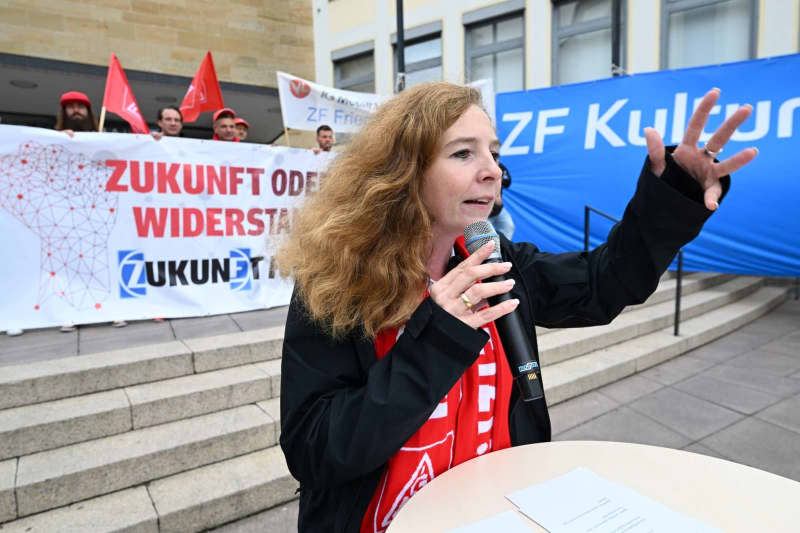Thousands of employees of German automotive supplier ZF are protesting against the company’s planned job cuts, with some 3,000 expected at the company’s headquarters in Friedrichshafen alone on Tuesday.
“We are taking this action because we have to defend ourselves against this frontal attack on the workforce in Germany,” said a works council spokesman.
Workers from a plant in the city of Saarbrücken in western Germany, which currently has 10,000 employees, are also taking part in the day of action, while the workforce in the south-western city of Mannheim were looking to protest with a motorcade. “We are calling on management to withdraw the redundancy plans,” the IG Metall trade union said in Mannheim.
ZF announced plans at the end of July to cut up to 14,000 jobs in Germany in the coming years. The company currently employs around 54,000 people in the country. To what extent reductions are planned at the 35 locations will be “specified in the coming weeks,” the board of management said at the time.
“We cannot decouple ourselves from the difficult conditions in the automotive industry, such as the delayed ramp-up of e-mobility and high production costs, especially in Germany,” said Lea Corzilius, ZF board member for human resources.
She added that ZF had to be made fit for the future and the locations in Germany developed to make them sustainably competitive.









